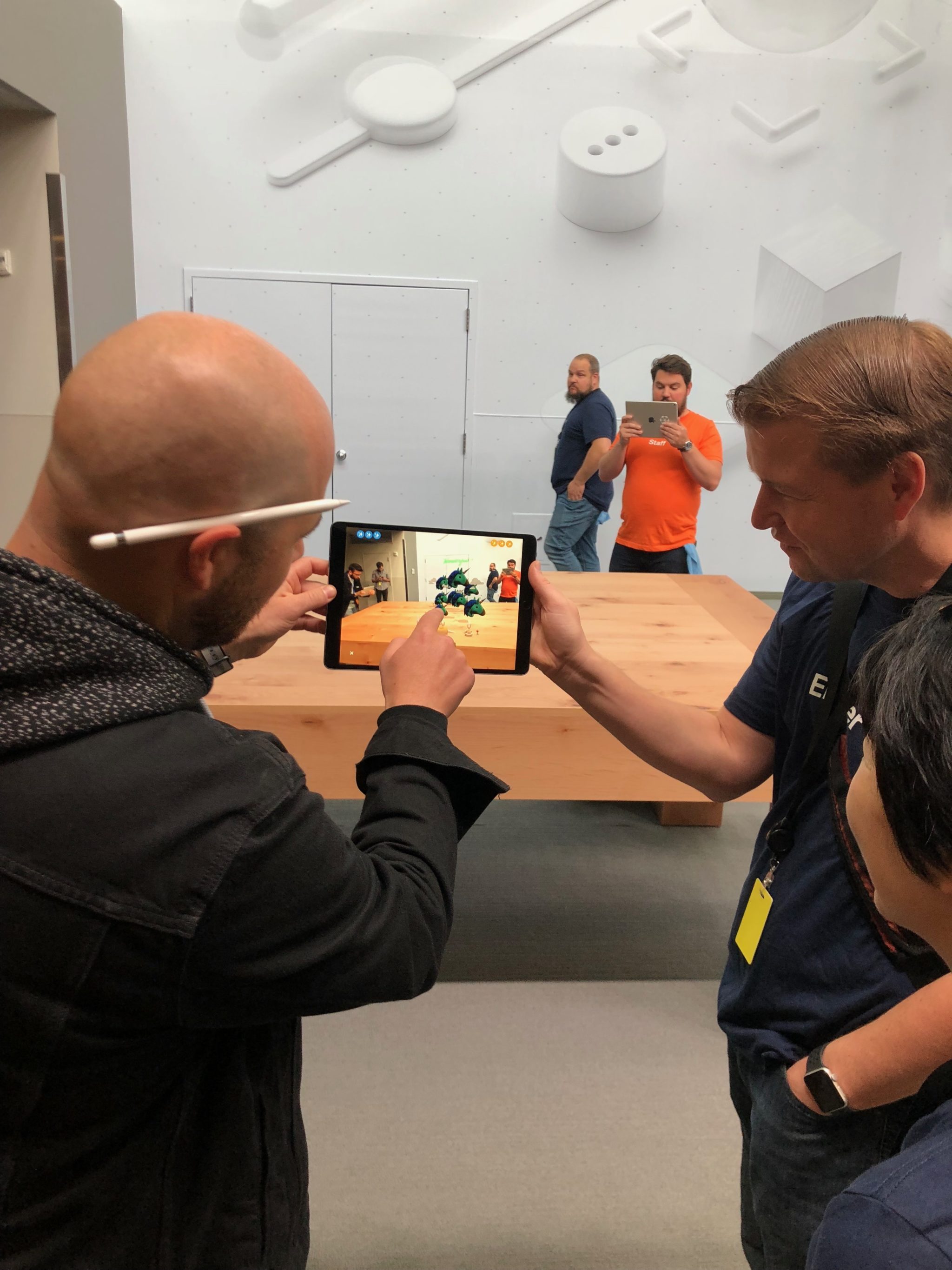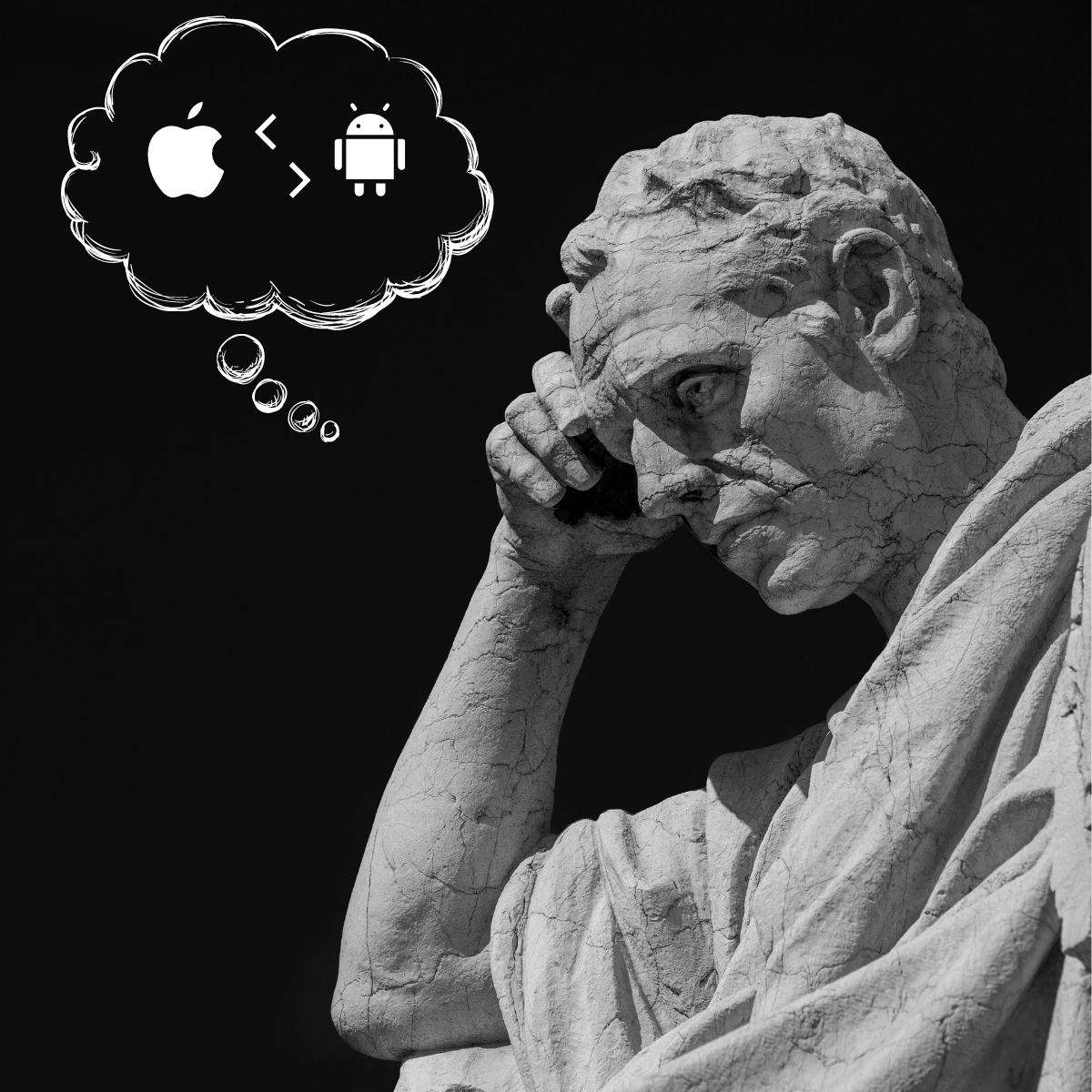Mobile app development begins with one question
Since the start of the pandemic in March 2020, the use of mobile apps has soared, with U.S. consumers spending 90 percent of their mobile phone time on apps. According to industry research, mobile app downloads and use on iOS and Android surged more than 200 percent from 2019 to 2020.
Mobile phones — and specifically, mobile apps — have become a dominant method for consumers to conduct business, be entertained, purchase products and services, book flights and hotels, and store and access information.
But dominant does not mean required. Many companies, seeing the pervasiveness of mobile apps and impressive statistics about their use, assume a mobile app is the default solution to a particular problem.
It isn’t. Not always. And that fact is core to the Wonderful philosophy. Whenever a potential or current client approaches us about building a mobile app, we always ask this question: Is a mobile app the best solution for your problem?
Every mobile app must have this essential goal
Mobile apps are not a quick fix for a poor business concept or dull marketing or sluggish consumer interest. Although mobile apps can typically be built cost-effectively, there are ongoing expenses after launch to maintain, expand and evolve the app. All of that is money wasted if a mobile app isn’t the best solution to a problem.
The question of whether to develop a mobile app is complex — and different for every company and problem. As experts with more than a decade of building mobile apps and other digital products, the team at Wonderful can help guide the decision-making (even if you don’t ultimately hire us.)
Remember: a mobile app should not gild the digital lily with flashy features. It should not arise from executive ego or comfort. It should not be like a cashmere diaper: striking but why? A mobile app should proceed with the goal of improving users’ lives, not just selling them stuff.
When mobile apps are a fit, companies need them more than ever

A well-designed mobile app enhances the connection between customers and a company’s products or services. It resides as close as possible to customers’ daily needs and habits.
As app expert Tyler Moore points out, an app shouldn’t be viewed as a replacement for a website. Each does its own job. Ditto for mobile websites and mobile apps. Each is a different tool.
Websites work across all types of devices, but apps can use features such as geolocation to customize messaging to potential customers. Smart companies use these features (and the distinctive mobile environment) to maximize consumer engagement and purchasing.
The world has become more mobile-reliant, and customers increasingly expect to avail themselves of mobile apps that are transparent, are user-friendly, and work well. App-savvy customers no longer want to make a phone call or draft an email if they can use an app.
Well-crafted apps variously solve customer pain points, offer delightful games and experiences, entertain for hours, and provide crucial resources and education. If the mobile app delivers value, users will find a place for it on the screen of their device. If not, they won’t.
Turn to a service provider for expertise, creation, and testing
New technologies have simplified many aspects of mobile app development. That means it’s easier now for companies to confidently budget the planning, development, launch, and post-launch costs of an app. That said, an app that delivers value still doesn’t come cheaply.
While many brands have internal digital teams, it’s critical to source experienced designers, developers, and project managers — like the team at Wonderful — to bring the experience, skill, and foresight necessary to efficiently develop mobile apps for both Apple and Android platforms.
A quality team, led by a key stakeholder, ensures each aspect of the build — from defining the value proposition of the app to engineering and testing to post-launch efforts — is justified, then executed.
The testing portion, sometimes given short shrift in the rush to market, is essential. A test flight with a web-based version of the mobile app can reveal flaws, suggest improvements to the mobile version, and potentially save thousands of team hours and dollars.
Working with an agency like Wonderful also allows you to focus on what you do best: producing quality content, creating customer experiences, and marketing the app as the launch date approaches.
Too often, costly and time-consuming rebuilds, from the ground up, are required for unworkable applications because the original developers didn’t understand the best way to accomplish the goal of the app. Up-front investment in agency knowledge and experience provides the best return on investment and is crucial to the success of the application.

Which platform: Apple or Android?
Two platforms, iOS and Android, continue to be the standard, and Wonderful recommends developing a version of the mobile app native to each. If a company can launch only one version, it should choose iOS, which powers more devices, thereby offering more opportunities to attract consumers. Also, it’s more efficient and less costly to develop applications for iOS.
Whatever platform you select, incorporating capabilities like GPS or messaging to customers when they’re near a retail presence will significantly enhance the value of the mobile app.

Start Small, Pay Attention to the Details
At Wonderful, we’re big believers that less is more for most mobile applications. Starting small and finding the right formula for your application is crucial before expanding into a larger, more complex structure.
When working with clients like FluidLogic, we’ve found that while the addition of showier features and capabilities is always engaging and exciting, without an original idea that delivers value to users, your mobile application won’t resonate.
It’s also important to follow the app-development guidelines for iOS and Android platforms. The guidelines ensure your app will meet technical standards, is approved for each app store, and is properly designed to function on any device.
Development of a high-value mobile app doesn’t need to be daunting. The team at Wonderful is ready to assist. Contact us today to hear more about how our products and services can create the perfect mobile application to serve your audience.



